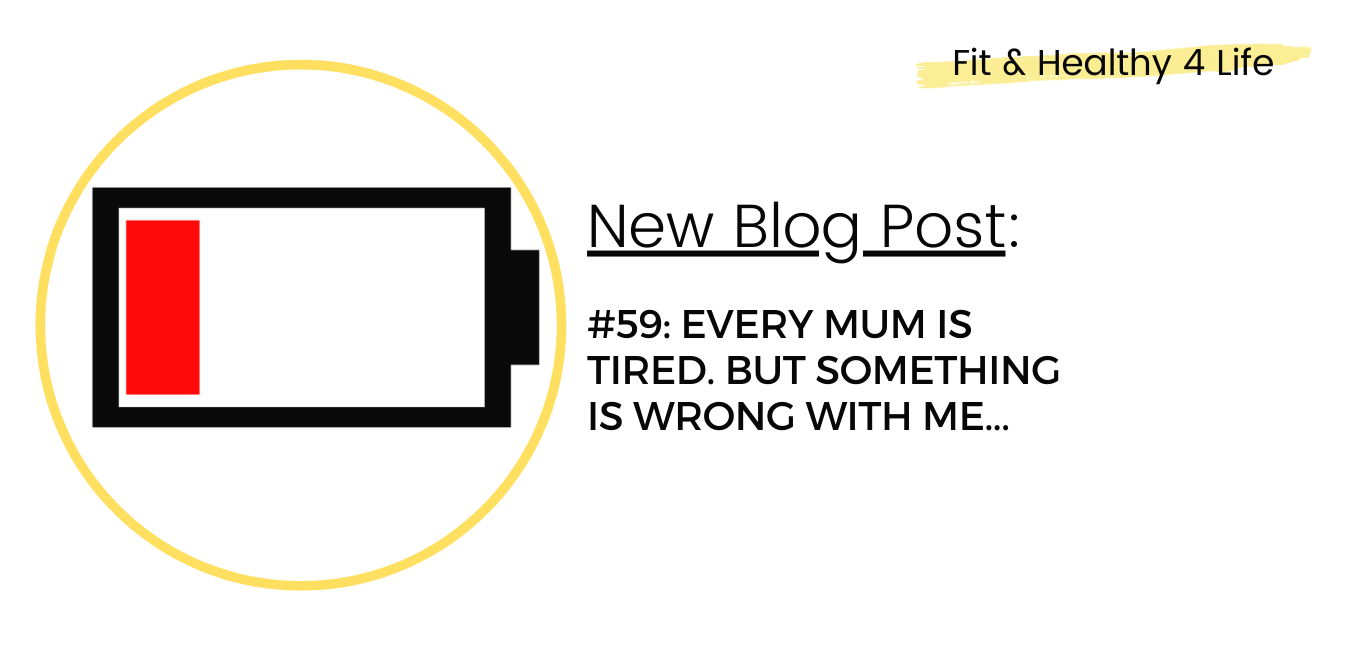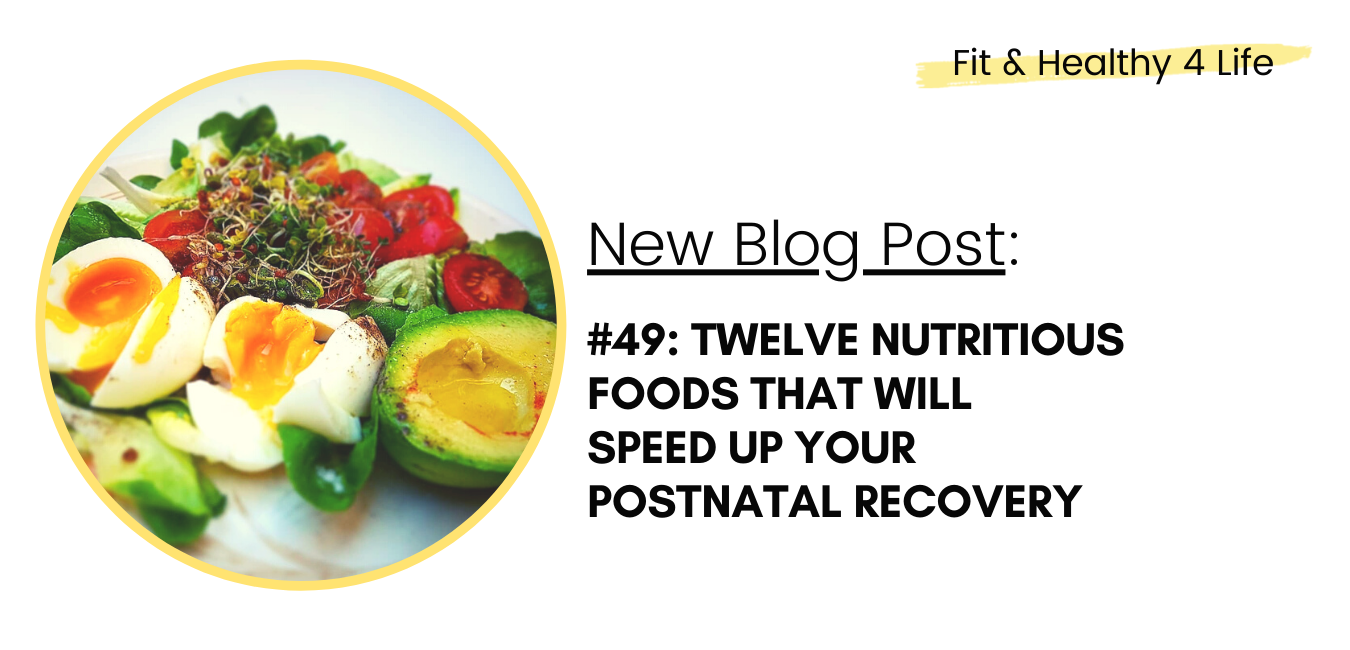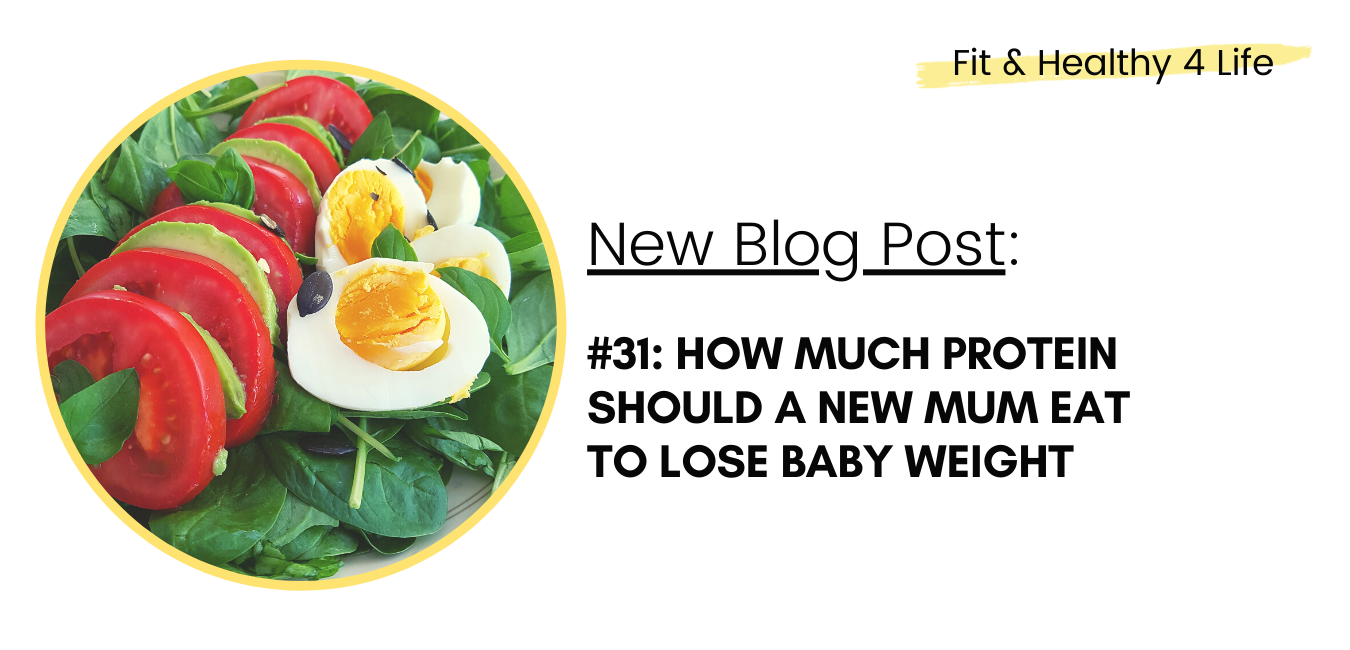If you’re desperate to lose your baby weight and raised in the “diet era” of 80s and 90s, you may have considered some “old school”, unhealthy and destructive solutions to lose your baby weight. Long term these methods do not work and often lead to injuries and health problems, including fatigue and hormonal imbalances. The risk is not worth it. In this post I list some unhealthy approaches you should never try to lose your baby weight and what to do instead.
Read MoreBefore having a baby I trained a lot. As a fitness trainer I taught a few classes a week. I was into hiking, cycling up mountains, bouldering, snowboarding and training even more at home. Today it feels like a lot but before, it was quite normal to me. I loved it. I didn’t have many issues with motivation. As long as I had a good night’s sleep it was great.
Today it is way different. Not only because it is three years later and I simply got older, but mainly because I don’t get enough sleep.
Read MoreAfter my pregnancy I was so impatient to get back to exercising. I was fed up with my mummy tummy and the lowest fitness level I had ever had. I didn’t feel good in my body. All I wanted to do was feel “normal” again. When I started training again I went all in. I went too hard. I overdid it, got fatigued and needed to take another break to recover. In this post I am sharing my story with you and explaining what is the better way to get back to exercising after having a baby (at the age of 40).
Read MoreI have been asking this question for a while now. Freya is 21 months old and I am still carrying some baby weight especially around my waist. It looks like it takes a while if you’re trying to stay healthy and energised at the same time.
Restorative nutrition and rest are the main elements for a new mum to focus on for as long as possible, especially for as long as you’re breastfeeding.
Hormones are the key to everything.
Read MoreFor as long as we’re breastfeeding our estrogen levels stay low. The longer we breastfeed the less juicy, less youthful and more tired we feel. On top of that, for as long as our estrogen is low, we won’t only have less energy to exercise, but we will also get less results from our training (estrogen is female testosterone) and we may struggle to lose weight.
If we are not sleeping through the night and breastfeeding, we have to focus on taking care of our body. Hormones control it all. Balancing our hormones, avoiding any unnecessary stressors and keeping our cortisol levels as low as possible is extremely important. Stressed body holds on to its fat, especially in the midsection.
Read MorePostnatal recovery and weight loss looks different for each woman, and we should never compare ourselves to others. Six months after giving birth I was desperate to lose my baby weight. I hoped that by this point I will be back to my pre pregnancy clothes. I had this idea about how my postnatal recovery should look like and the reality didn’t really match it. I kept on trying to get back to training and I failed every single time. Eventually, when Freya was 12 months old I just crashed. Every little thing was making me extremely stressed. I didn’t know what was going on with me but it wasn’t such an unusual thing. Many mums go through extreme fatigue in the first year of giving birth (I don’t mean depression, I mean total exhaustion which also affects mood but isn’t the same as depression).
Read MoreThe images of different stars and celebrities looking amazing only 12 weeks after giving birth are extremely encouraging but at the same time misleading. Look at Kate Middletown for example. She looked stunning 8 hours after giving birth to her third child and back to her pre pregnancy body just three months later. That leaves most mum with this unrealistic expectation that postnatal recovery is so fast. It makes us try dieting and extreme exercising too soon, leaving us stressed, fatigued and sometimes even fatter (as our body stores fat when we’re stressed).
Read MoreHigh protein diets have been recommended as the best way to get lean and keep our cravings at bay for a while now. Protein is an important macronutrient. Overeating protein is as bad as overeating fats or carbs. Too much of anything is just too much. Yet the amount every person needs is very individual. There is more to healthy nutrition, especially for women. How much you should eat depends on your body type, genetics, lifestyle and may change with age. Postnatal nutrition is also slightly different.
Read MoreIntermittent fasting may be the latest “proven” way to lose weight and improve overall health, but it hardly ever works for women in their reproductive years. Even though I lost some weight when I tried it, I ended up crushing and burning (=messed up my hormones).
Read More










